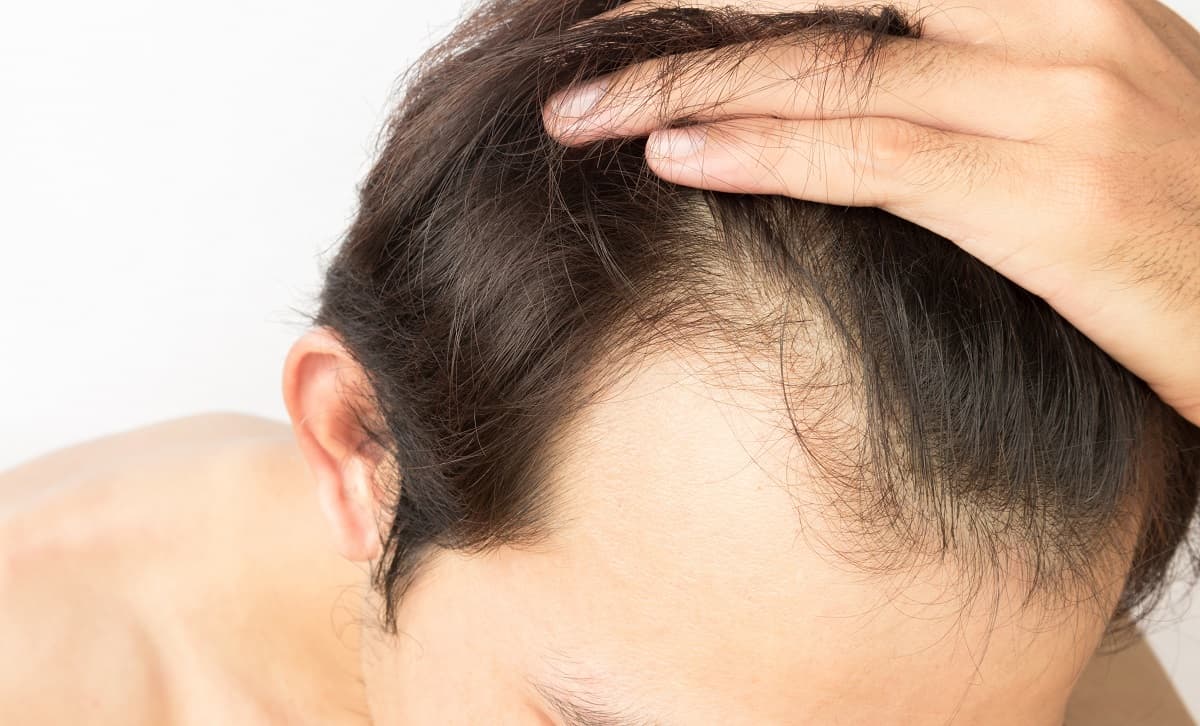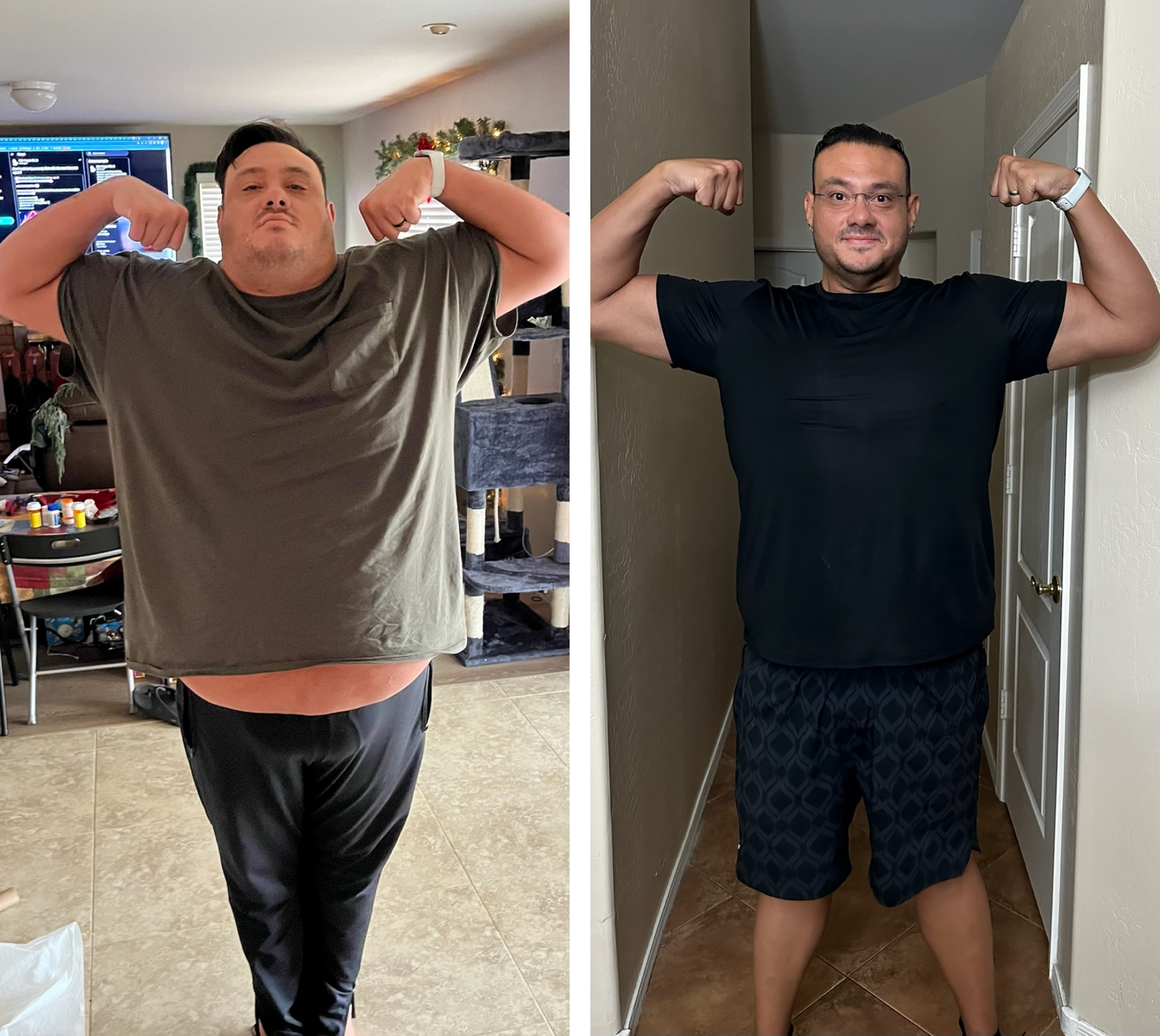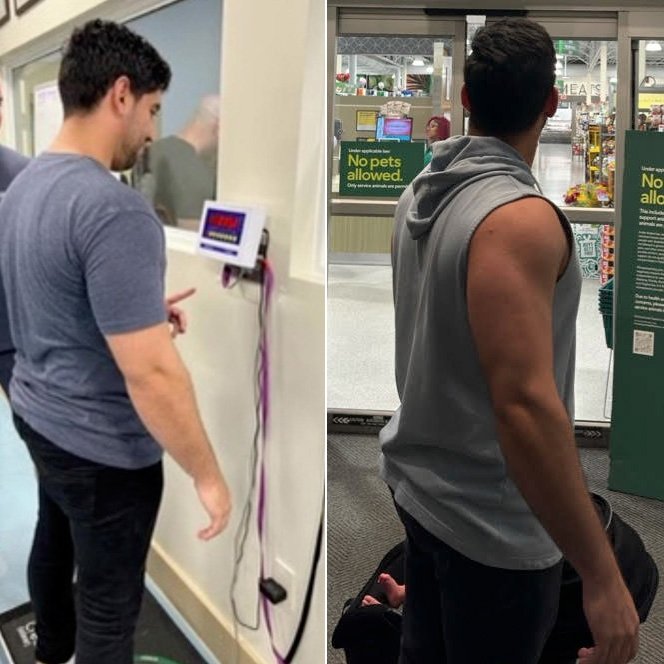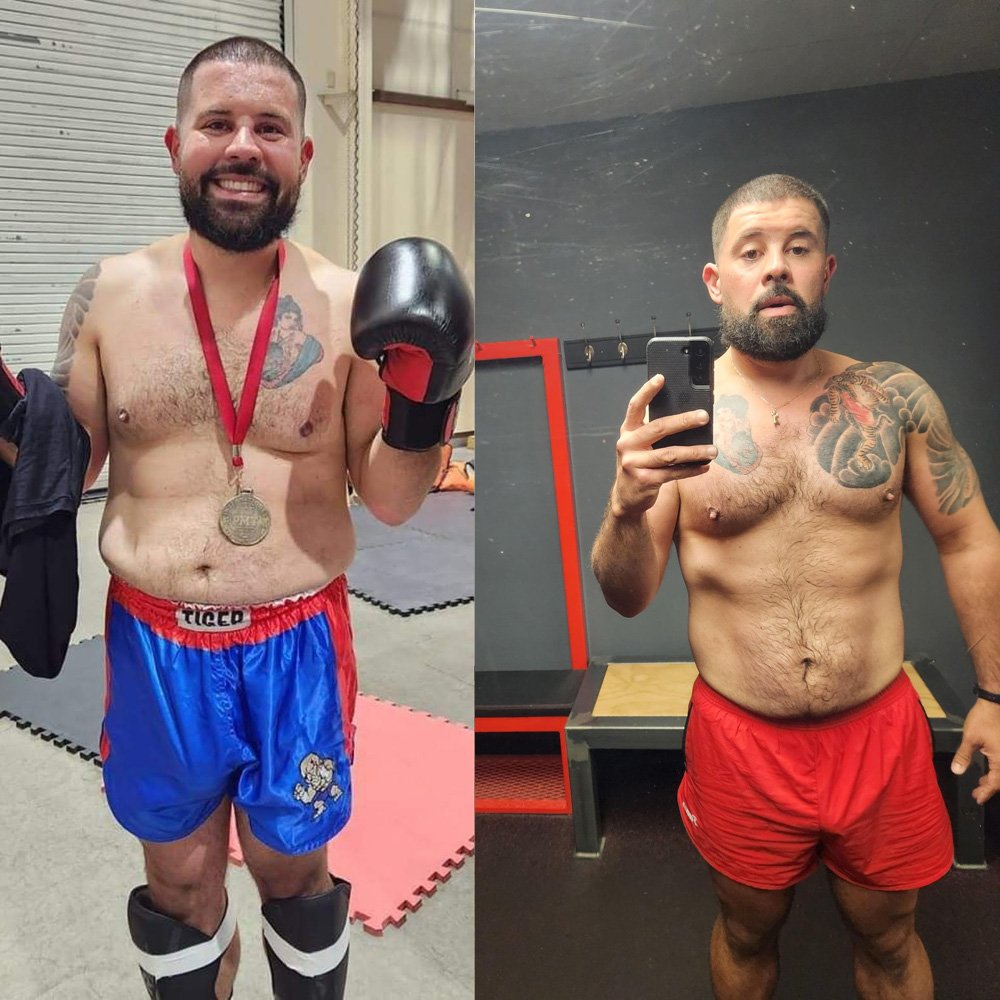At one point, many assumed that hair loss was typically caused by a stress-related or predisposed genetic condition that primarily occurred in older men in their mid to late 40s or early 50s. However, over the past few decades, hair loss has affected over 50 million men in the United States, with the medical condition being more common in men over 35 and even among young adult males between the ages of 26 and 29. And as the years passed and more men from younger age demographics reported sudden unexplained hair loss, researchers began to hypothesize that there might be other possible causes.
Due to the discrepancies and conflicting data regarding the different circumstances surrounding male hair loss, many scientists have studied other aspects of human physiology to find the root cause behind hair thinning in men. After several years of research, they have found that many men who suffered from hair loss also had low testosterone levels. Based on these findings, many medical experts believe there is a strong link between hair loss and low testosterone.
However, because men with normal testosterone levels also experience premature hair thinning, many in the medical community believe that it’s unlikely that every man’s experience with hair loss is due to a hormonal imbalance. So, the question remains: can low testosterone cause a man to lose his hair?
How Does Testosterone Affect Hair Loss in Males?
For every man, testosterone is an essential androgen hormone needed to regulate many of their male characteristics and physical functions. It is primarily responsible for a man’s muscle strength, sexual desire, bone density, and hair growth on their arms, legs, and, most importantly, their head. However, as men begin to inch closer to middle age, their testosterone levels usually start to decline and significantly affect those male characteristics, eventually leading to decreased muscle mass, sexual dysfunction, and, potentially, hormonal hair loss.
Many studies have revealed that when testosterone levels drop below normal standards, testosterone deficiency can deprive the follicles of the hormones needed for hair growth, eventually causing the hair strands to weaken and break. But how exactly does the deprivation occur? Well, that is determined by how your remaining testosterone gets broken down and synthesized after your testosterone levels decline.
Typically, your total testosterone gets separated into two types: free testosterone and dihydrotestosterone (DHT). Usually, most of your total testosterone in the body is bound to either one of several proteins; albumin and sex hormone-binding globulin (SHBG). However, free testosterone is a form of the androgen hormone left unbound to any proteins in the body and remains available for later use. For the most part, free testosterone will act as receptors for many other cells in the body and help facilitate many other bodily functions. But there are times when some of that free testosterone can get converted into DHT, and that’s when the issues with hair loss start to become more complex.
During testosterone production, an enzyme known as 5-alpha reductase will convert some of your testosterone into dihydrotestosterone (DHT). Usually, the DHT hormone is responsible for developing the prostate, skin, and hair during puberty and will continue to help regulate those functions even after men reach adulthood. DHT especially affects the hair, as it binds itself specifically to the hair follicles themselves to develop hair growth. However, because of its impact on the hair follicles, DHT can actually become both a blessing and a curse, depending on the circumstances.
When a man’s testosterone declines, the deficiency can cause DHT levels to rise. Gradually, those high levels of DHT will cause the hair follicles to shrink and weaken the hair strands, which can eventually lead to thinning hair. Once those hair strands fall, the increased dihydrotestosterone will make it more difficult for the scalp to produce more to replace them, eventually leading to hair loss and baldness.
At first, this seems simple enough to understand. If a man has Low T, his DHT levels increase and cause his hair to weaken and gradually fall until he’s bald, right? Well, not quite. As previously stated, only some hair loss cases result from testosterone deficiency. There are instances where men with low testosterone never experience hair loss, just as there are many other cases where men with normal testosterone levels eventually lose most, if not all, of their hair. So, if that’s the case, the data prompts another question: can your testosterone levels truly affect whether or not you experience hair loss?
Feeling Run-Down?
Take the Low-T Quiz Today
Our men’s clinic can restore your physiology, change your body composition and optimize your health to slow down aging and prevent health complications caused by low testosterone.
Take back your life and become a better you today!
Does High Or Low Testosterone Cause Hair Loss?
Because of the correlation between androgen deficiency, DHT, and men’s hair health, many people have linked low testosterone to premature hair loss. But the truth is, you could have high testosterone and still lose your hair. Like low testosterone, most men will experience a hormone imbalance once their testosterone levels exceed the expected amount. And when that happens, that hormone imbalance will also cause DHT to increase and contribute to hair loss.
Both low and high testosterone can lead to the body producing more DHT. Based on the similarities, most researchers believe high DHT levels are the primary cause of hair loss. But that isn’t necessarily true. There are also many men with high DHT levels who have never experienced hair loss. So what is the actual link between your hair loss and your testosterone?
After many clinical studies, scientists have found that in most cases, this DHT sensitivity is a genetic condition that can be traced back through the men in your family. Naturally, that means if other men in your family have a high sensitivity to DHT and have experienced hair loss, you have a much higher chance of experiencing hair loss yourself. Most men with close family relatives that are currently balding may cringe at the thought of being genetically imprisoned to the possibility of losing their hair in the future. However, it is good to know how your family’s medical history may affect your body’s handling of DHT and your hair health as you also grow older. Having that knowledge may provide you with a fighting chance against potential baldness.
Is Hair Loss From Low Testosterone Reversible?
It is possible to reverse hair loss caused by low testosterone with proper treatment. However, this will also depend on the cause of your testosterone deficiency. Underlying medical conditions such as diabetes may also contribute to your low testosterone and must be addressed first to restore your hair. In most cases, it may still take several months to a year of constant treatment and a healthy lifestyle for your hair to return to its natural growth cycle.
Types of Baldness in Men
Men with low testosterone and a DHT sensitivity are more likely to experience alopecia, a condition involving hair loss on the top of the head. There are many forms of alopecia, and each can affect your hair loss in different ways. In most cases, these forms of alopecia can lead to hair thinning and temporary or permanent baldness.
Androgenic Alopecia
Commonly referred to as male pattern baldness (MPB), androgenic alopecia can occur in both men and women as early as their teens. Typically, MPB begins when the hairline starts to recede, and the hair gradually disappears from the crown and frontal scalp.
Involutional Alopecia
This particular alopecia is an age-related condition that causes the hair to naturally thin as men age. During this transition, more hair follicles enter the resting phase, and any remaining hair strands become shorter.
Alopecia Areata
This temporary form of alopecia can usually suddenly cause patchy hair loss in children and young adults. However, most patients who suffer from alopecia areata can see their hair return with medical treatment after a few years.
Telogen Effluvium
This type of alopecia is a result of various changes in the hair’s growth cycle. During this time, many hair strands enter the resting phase simultaneously and also cause the hair to shed, eventually leading to temporary hair thinning over the scalp.
Diagnosing and Treating
If you’re experiencing hair loss as a result of low testosterone, then it may be due to a sensitivity to DHT. To figure out how your body responds to DHT, you will need to discuss your hair loss with your doctor. Your physician can study your medical records, ask about your family’s medical history, and check your testosterone levels to determine if you’re DHT sensitive. Once they confirm that you have a DHT sensitivity, your physician can offer several treatment options to help manage your hair loss.
Since the 5-alpha reductase enzyme is the main culprit responsible for increasing DHT levels, you will need medication to block or inhibit the enzyme’s effect on your cells. Luckily, there are various hair loss medications that can work as DHT blockers or inhibitors to help with that.
Certain DHT blockers, such as Minoxidil and Finasteride, can help prevent dihydrotestosterone development by binding to the 5-alpha reductase enzyme before it can interact with any testosterone. Your physician may also suggest utilizing natural DHT inhibitors such as caffeine, green tea, and peppermint oil to help reduce or even cease already active DHT production. In addition, specific inhibitors such as saw palmetto can even help remove DHT that’s already bound to your hair follicles and prevent any potential damage in the future.
Testosterone Replacement Therapy and Hair Loss
For men with low T symptoms such as hair loss, testosterone replacement therapy (TRT) is a viable option to help boost their testosterone levels and stimulate hair growth. Since testosterone is essential in developing body and facial hair, TRT can help men raise their testosterone levels to healthier standards and prevent further hair loss, potentially allowing their hair to return to its normal growth cycle. In addition, by using TRT to replenish their low testosterone, men can prevent the symptoms of low testosterone and other related medical conditions that can contribute to their hair loss, such as diabetes.
At Renew Vitality, we provide comprehensive testosterone replacement therapy to men experiencing hair loss due to low testosterone. Our treatment programs combine effective hormonal medications with individualized exercise and diet plans to help men boost their testosterone levels and manage their hair loss. If you suspect you are experiencing hair loss due to low testosterone, contact us at 1-866-995-2371 to schedule an appointment at one of our hormone replacement clinics in the United States.

























